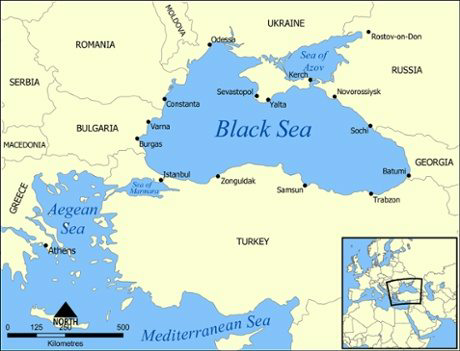"We can expect nothing from the West but blind hatred and malice." - Russian historian Mikhail Pogodin's memorandum to Nicholas I, 1853. (Source: "The Long History of Russian Whataboutism" By Joshua Keating, Slate, March 21, 2014).
The conflict in Ukraine, like the Crimean War of the 19th century, is about limiting Russia's size and defining its place in the world.
It is also about changing the character of Russia.
The Western elite would love nothing more than to see a whoring, drunk, atheistic, corrupt fool in charge in Russia. They wish it was still the 1990s over there. They hate the fact that Putin is none of those things.
Putin is by no means an angel, but he is not the modern embodiment of the communist butchers or the Tsarist oppressors. The Russia of today is not out to conquer anyone or change the character of nations by force.
Russia's intervention in Ukraine after years of fruitless talks with Western and Ukrainian leaders is totally understandable from a security perspective.
While it is true that Putin is digging up old wounds, he has explained his reasoning for invading Ukraine with facts and analysis.
The other side is purely driven by emotions.
It is always a bad idea when historical resentments and past sins are used to dictate present day policy. Unfortunately, that seems to be the position of countries like Poland, Ukraine, and other members of the former Soviet bloc.
If it were up to Poles, Ukrainians, and other East Europeans Russia would be a ditch in Moscow. They are motivated by revenge. It looks like they joined NATO not for security reasons but to gang up on Russia and put right historical wrongs.
Janusz Bugajski, a British-American political scientist of Polish descent, who "chairs the South-Central Europe area studies program at the Foreign Service Institute of the U.S. Department of State" (source) has expressed fantasies about the break-up of Russia into manageable little pieces.
In an article published by The Hill in January 2019, called, "Managing Russia’s dissolution" Bugajski wrote:
Some regions could join countries such as Finland, Ukraine, China and Japan, from whom Moscow has forcefully appropriated territories in the past. Other republics in the North Caucasus, Middle Volga, Siberia and the far east could become fully independent states and forge relations with China, Japan, the U.S. and Europe.
Neglecting Russia's dissolution may prove more damaging to Western interests than making preparations to manage its international repercussions. To avoid sudden geopolitical jolts and possible military confrontations, Washington needs to monitor and encourage a peaceful rupture and establish links with emerging entities.
